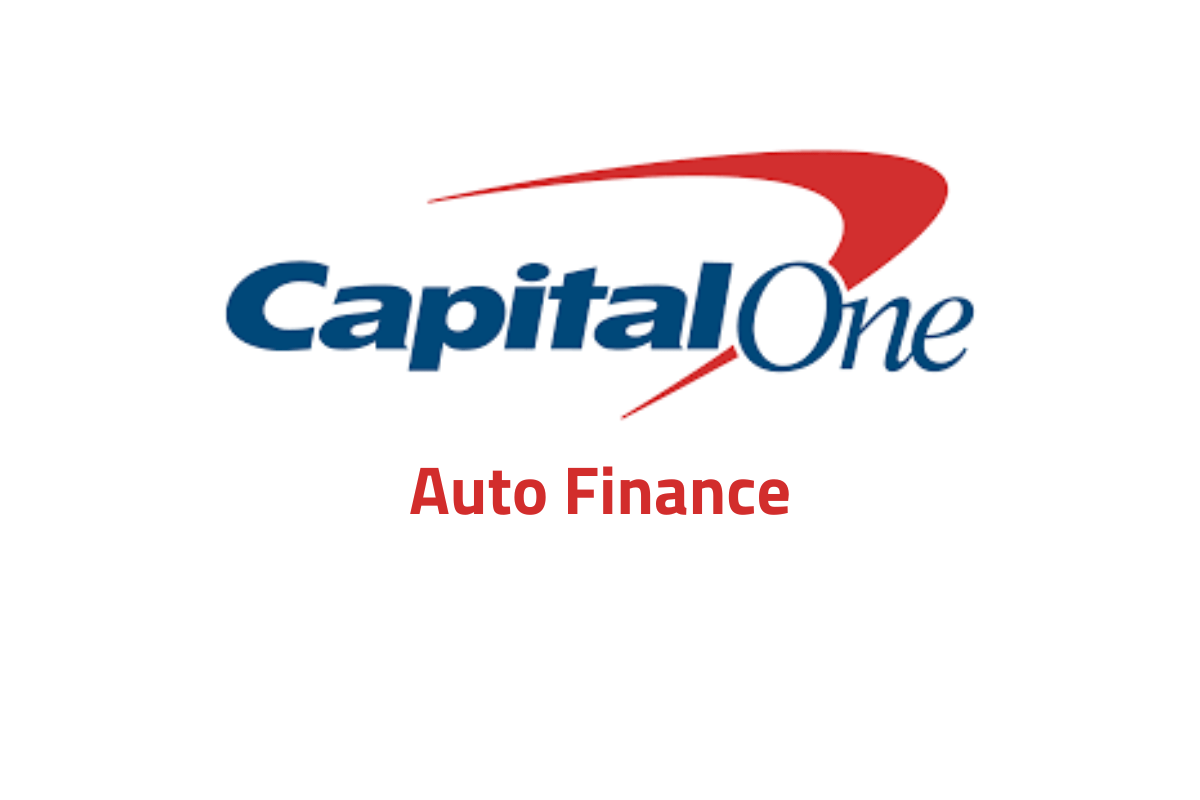Purchasing a used car can be a smart financial decision, offering significant savings compared to buying new. Securing the right financing is crucial to making that decision even smarter. Understanding the ins and outs of used car loans, especially from reputable lenders like Capital One, is essential for making an informed choice. On странице https://www.capitalone.com/, you can explore various financing options, including those for used vehicles, and compare rates to find the best fit for your budget. This comprehensive guide will delve into the specifics of Capital One used car loans, outlining the application process, eligibility requirements, interest rates, and much more, ensuring you’re well-equipped to navigate the used car financing landscape.
Understanding Capital One Auto Navigator
Capital One’s Auto Navigator is a valuable tool for prospective used car buyers. It allows you to pre-qualify for an auto loan without impacting your credit score. This pre-qualification provides an estimated interest rate and loan terms, giving you a clear understanding of your potential borrowing power before you even start shopping for a car.
Benefits of Using Auto Navigator
- Pre-Qualification Without Credit Impact: See potential loan terms and rates without affecting your credit score.
- Shop with Confidence: Know your budget and financing options before visiting a dealership.
- Compare Cars and Financing: Compare different vehicles and see estimated financing options for each.
- Streamlined Dealership Experience: Potentially reduce the time spent at the dealership finalizing financing.
Eligibility Requirements for a Capital One Used Car Loan
While Capital One’s Auto Navigator offers pre-qualification, meeting certain eligibility requirements is necessary to secure the actual loan. These requirements typically include factors related to your credit history, income, and the vehicle you intend to purchase.
Credit Score Considerations
A good credit score is generally required to qualify for the most favorable interest rates and loan terms. Capital One considers various factors within your credit report, including your credit history, payment history, and the amount of debt you currently carry. While a perfect credit score isn’t always necessary, a higher score increases your chances of approval and securing a lower interest rate.
Income Verification
Capital One will require proof of income to ensure you have the ability to repay the loan. This typically involves providing pay stubs, bank statements, or tax returns. The amount of income required will vary depending on the loan amount and your overall financial profile.
Vehicle Requirements
Capital One has specific requirements for the age and mileage of the used vehicle you intend to finance. Generally, they finance vehicles that are newer than a certain model year and have mileage below a certain threshold. These requirements are in place to ensure the vehicle’s value aligns with the loan amount and reduces the risk of depreciation.
The Application Process: Step-by-Step
Once you’ve pre-qualified through Auto Navigator and found a used car you want to purchase, the next step is to complete the formal loan application. This process involves providing more detailed information and submitting supporting documentation.
Gathering Necessary Documents
Before starting the application, gather all necessary documents to ensure a smooth and efficient process. This typically includes:
- Proof of Income: Pay stubs, bank statements, or tax returns.
- Proof of Residence: Utility bill, lease agreement, or mortgage statement.
- Driver’s License: Valid driver’s license.
- Vehicle Information: Vehicle Identification Number (VIN), make, model, and year.
- Insurance Information: Proof of current auto insurance.
Completing the Online Application
The formal loan application is typically completed online through Capital One’s website. You’ll be asked to provide detailed information about yourself, your employment, your income, and the vehicle you intend to purchase; Be sure to answer all questions accurately and completely to avoid any delays in the approval process.
Loan Approval and Funding
Once you’ve submitted your application, Capital One will review your information and make a decision. If approved, you’ll receive a loan offer outlining the interest rate, loan terms, and monthly payment. Carefully review the offer and ensure you understand all the terms and conditions before accepting it. Once you accept the offer, Capital One will work with the dealership to finalize the loan and fund the purchase of the vehicle.
Understanding Interest Rates and Loan Terms
The interest rate and loan term are critical factors to consider when evaluating a used car loan. The interest rate represents the cost of borrowing money, while the loan term determines the length of time you have to repay the loan.
Factors Affecting Interest Rates
Several factors can influence the interest rate you receive on a used car loan, including:
- Credit Score: A higher credit score typically results in a lower interest rate.
- Loan Term: Shorter loan terms often have lower interest rates than longer terms.
- Vehicle Age and Mileage: Older vehicles with higher mileage may have higher interest rates.
- Down Payment: A larger down payment can sometimes result in a lower interest rate.
- Lender: Different lenders offer different interest rates, so it’s essential to shop around and compare offers.
Choosing the Right Loan Term
The loan term significantly impacts your monthly payment and the total amount of interest you’ll pay over the life of the loan. Shorter loan terms result in higher monthly payments but lower overall interest costs. Longer loan terms result in lower monthly payments but higher overall interest costs. Carefully consider your budget and financial goals when choosing the right loan term.
Comparing Capital One to Other Lenders
While Capital One is a reputable lender, it’s always wise to compare offers from multiple lenders to ensure you’re getting the best possible deal. Consider factors such as interest rates, loan terms, fees, and customer service when comparing lenders.
Online Lenders
Several online lenders specialize in auto loans and may offer competitive rates and terms. These lenders often have a streamlined online application process and may be a good option if you prefer to handle the financing process online.
Credit Unions
Credit unions are non-profit financial institutions that often offer lower interest rates and more favorable terms than traditional banks. If you’re a member of a credit union, it’s worth checking their auto loan rates.
Bank Loans
Traditional banks also offer auto loans, and their rates and terms can vary depending on your credit score and relationship with the bank. If you’re already a customer of a bank, it may be worth checking their auto loan rates.
Tips for Getting Approved for a Used Car Loan
Improving your chances of getting approved for a used car loan involves taking steps to strengthen your credit profile and demonstrate your ability to repay the loan.
Improve Your Credit Score
Improving your credit score is one of the most effective ways to increase your chances of approval and secure a lower interest rate. This can be achieved by:
- Paying Bills on Time: Make all your bill payments on time, every time.
- Reducing Debt: Pay down your existing debt to lower your credit utilization ratio.
- Checking Your Credit Report: Review your credit report for errors and dispute any inaccuracies.
- Avoiding New Credit Applications: Avoid applying for new credit accounts in the months leading up to your loan application.
Make a Larger Down Payment
Making a larger down payment reduces the amount you need to borrow, which can increase your chances of approval and potentially lower your interest rate. It also demonstrates to the lender that you’re invested in the vehicle.
Consider a Co-Signer
If you have a limited credit history or a lower credit score, consider asking a family member or friend with good credit to co-sign the loan; A co-signer guarantees the loan, which reduces the lender’s risk and increases your chances of approval.
Navigating the Dealership with Financing in Mind
Knowing your financing options before visiting a dealership can give you more negotiating power and prevent you from overspending. Pre-approval through Capital One’s Auto Navigator can be a significant advantage.
Negotiating the Price of the Vehicle
Negotiate the price of the vehicle separately from the financing. Focus on getting the best possible price on the car itself before discussing financing options. Research the fair market value of the vehicle to ensure you’re not overpaying.
Beware of Add-ons and Extras
Dealerships often try to sell add-ons and extras, such as extended warranties, paint protection, and fabric protection. Carefully consider whether these add-ons are necessary and whether they fit within your budget. Don’t feel pressured to purchase anything you don’t need or want.
Read the Fine Print
Before signing any loan documents, carefully read the fine print and ensure you understand all the terms and conditions. Don’t hesitate to ask questions if anything is unclear. Understanding the details of your loan agreement is crucial to avoiding surprises down the road.
Alternative Financing Options to Consider
While Capital One offers a convenient financing solution, exploring other options can provide a broader perspective and potentially lead to better terms.
Personal Loans
Personal loans can be used for various purposes, including financing a used car. While interest rates might be slightly higher compared to secured auto loans, they offer flexibility and don’t require the vehicle as collateral.
Home Equity Loans
If you own a home, a home equity loan or line of credit could be an option. These loans use your home as collateral and often come with lower interest rates than unsecured loans. However, consider the risk of potentially losing your home if you default on the loan.
Savings
If feasible, consider using your savings to purchase the used car outright. This eliminates the need for financing and avoids interest charges altogether; While it requires a significant upfront investment, it can save you money in the long run.
Avoiding Common Used Car Loan Mistakes
Making informed decisions is crucial when securing a used car loan. Avoid these common pitfalls to ensure a smooth and financially sound experience.
Not Shopping Around for the Best Rates
Failing to compare offers from multiple lenders is a common mistake. Interest rates can vary significantly, so shopping around can save you a substantial amount of money over the life of the loan.
Focusing Solely on the Monthly Payment
Focusing solely on the monthly payment without considering the interest rate and loan term can be detrimental. A lower monthly payment may seem appealing, but it could result in paying significantly more interest over a longer loan term.
Ignoring Fees and Penalties
Be aware of any fees or penalties associated with the loan, such as origination fees, prepayment penalties, or late payment fees. These fees can add to the overall cost of the loan.
Securing a used car loan from Capital One, as mentioned on https://www.capitalone.com/, can be a practical solution for many, but careful planning and consideration of all available options are paramount. Remember to thoroughly research vehicles, understand your credit situation, and compare loan offers. Prioritizing these steps will pave the way for a confident and financially responsible purchase. By doing so, you’ll navigate the process effectively and drive away with a vehicle that meets your needs and budget.
Description: A comprehensive guide on securing a **capital one used car loan**, covering eligibility, application process, interest rates, and tips for getting approved.





